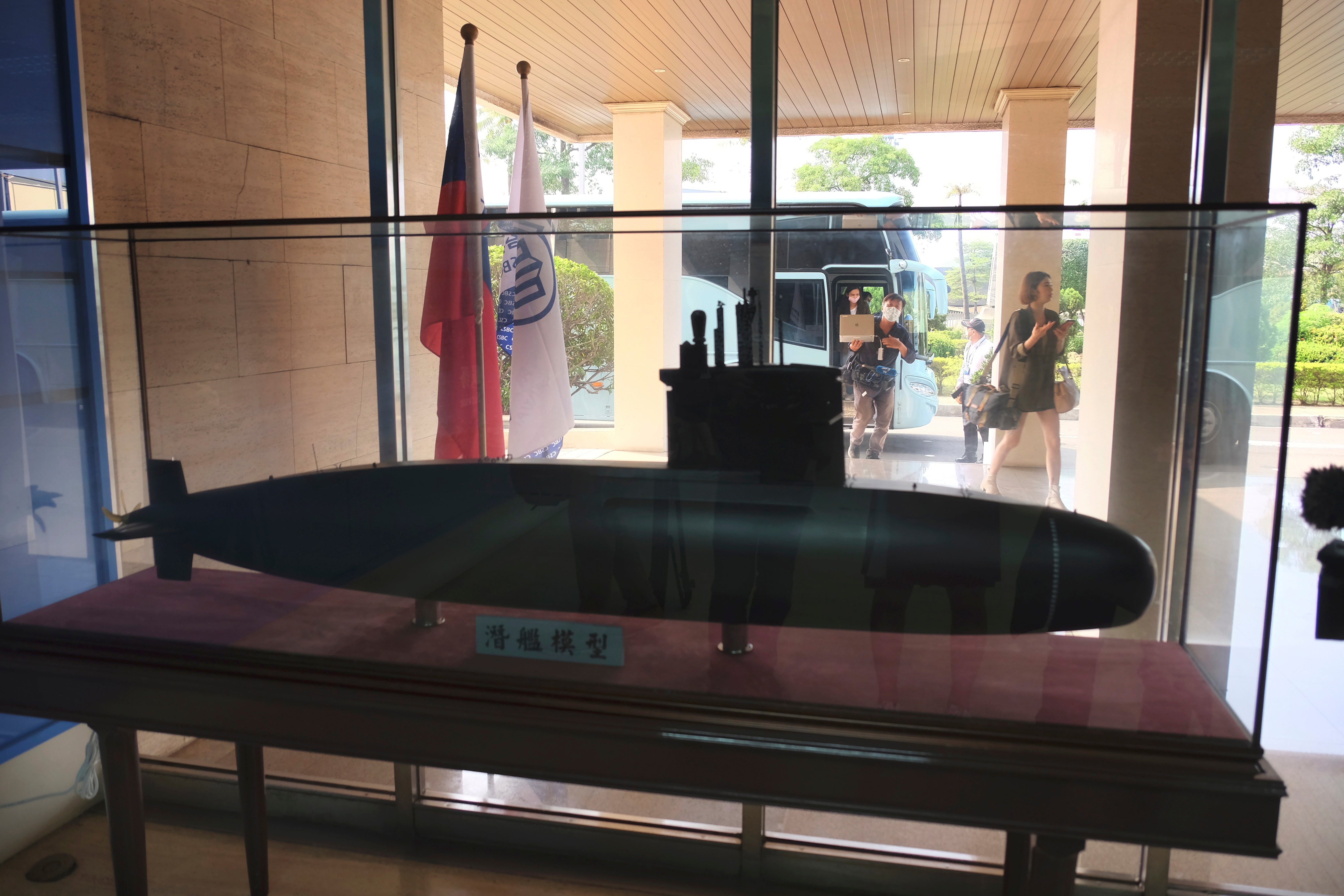Taiwan launches production of new fleet of submarines to defend against Chinese invasion
The first of eight planned submarines will be delivered in 2025

Taiwan has launched production of a new fleet of submarines that have been developed domestically with support from the United States to bolster its defences against China.
China claims the island as part of its territory and has been critical of any country that engages it diplomatically, while US-Taiwan cooperation has only escalated during the Trump administration.
The programme to revamp the fleet of submarines has been in the works for a number of years, and is seen as a vital part of Taiwan’s overall efforts in maintaining a credible defence against the threat of a Chinese invasion.
At the launch of the production of the submarines in its port city of Kaohsiung, Taiwan’s president Tsai Ing-wen vowed to defend her country’s sovereignty and said the “construction demonstrates Taiwan’s strong will to the world to protect its sovereignty”.
The president called it a “historic milestone” for Taiwan’s defensive capabilities, after overcoming “various challenges and doubts”.
“This submarine is an important part of allowing our navy to develop asymmetric warfare and to intimidate and block enemy ships from surrounding Taiwan's main island. Now, with the construction of the submarine to its future commission, we will certainly let the world know our persistence in safeguarding our sovereignty.”
The project has faced criticism for its high cost, estimated to be more than $16bn (£12bn).
But improving her country’s defence preparedness against China has been top of Ms Tsai’s agenda, even if the country’s fleets stand nowhere in a head-to-head comparison to China’s vast forces.
In June, she had overseen the first public test flight of a new advanced jet fighter.
And she recently secured approval from the US for the purchase of billions of dollars in weapons including upgraded F-16 fighter jets and armed drones.
The announcement comes after US Navy Rear Admiral Michael Studeman’s visit to Taiwan on Sunday. The Taiwanese government had welcomed the visit but refused to share any more details.
In 2018, the Trump administration had given the green light for US manufacturers to participate in Taiwan’s submarine programme, to ensure that it gets the required support for major components.
According to the CSBC Corporation Taiwan, the island’s leading and formerly public shipbuilding company, the first of the eight planned submarines will be delivered in 2025 despite what its chairman Cheng Wen-lung called major challenges in procuring parts due to “external forces hindering the development of this programme.”
The event was attended by Brent Christensen, who is the director of the American Institute in Taiwan’s Taipei office and the de facto ambassador of the US in Taiwan.
Over the past few months, Taiwan’s foreign minister Joseph Wu has been expressing concerns that Taiwan may become the next Hong Kong, a reference to Beijing’s national security crackdown in that city.
Taiwan has also been vocal about enhanced Chinese military activities near its borders. In October, Taiwan’s government said that its air force spent nearly $900m on scrambling its jets against incursions by China in 2020.
The outgoing Trump administration has continued to move against China even after the 3 November election handed victory to president-elect Joe Biden, as the Republican tries to maintain a hardline stance against Beijing as one of the key legacies of his single term in the White House.
Earlier, this month, secretary of state Mike Pompeo said in an interview that “Taiwan has not been a part of China.” The statement drew a sharp response from Beijing, which called Taiwan an inalienable part of China and accused Mr Pompeo of damaging Sino-US ties.
Additional reporting by agencies
Join our commenting forum
Join thought-provoking conversations, follow other Independent readers and see their replies
Comments
Bookmark popover
Removed from bookmarks